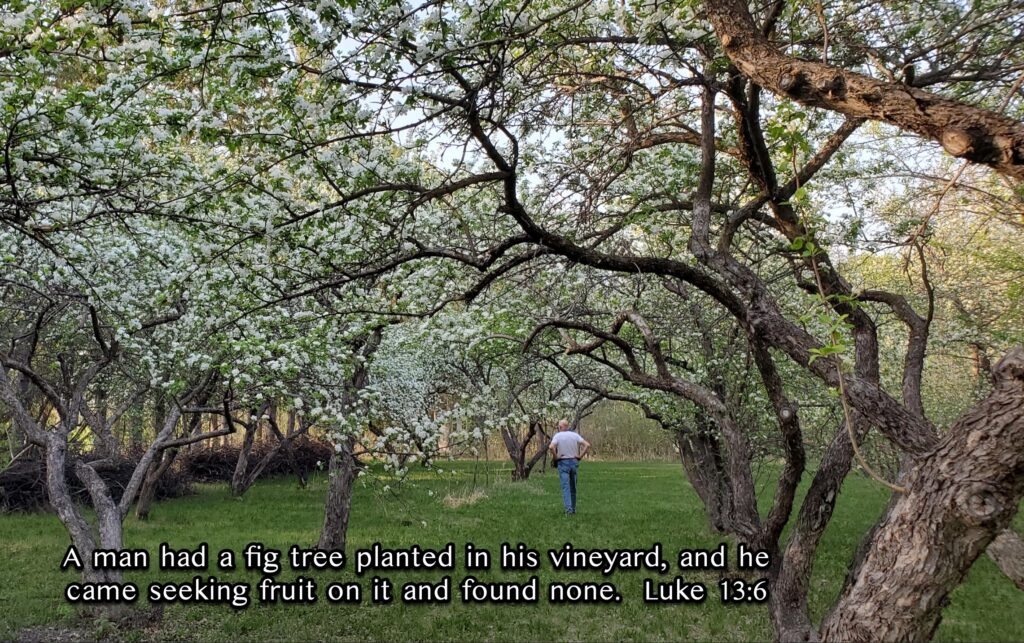May 18, 2025

Luke 13:1–5 ESV
There were some present at that very time who told him about the Galileans whose blood Pilate had mingled with their sacrifices. And he answered them, “Do you think that these Galileans were worse sinners than all the other Galileans, because they suffered in this way? No, I tell you; but unless you repent, you will all likewise perish. Or those eighteen on whom the tower in Siloam fell and killed them: do you think that they were worse offenders than all the others who lived in Jerusalem? No, I tell you; but unless you repent, you will all likewise perish.” And he told this parable: “A man had a fig tree planted in his vineyard, and he came seeking fruit on it and found none. And he said to the vinedresser, ‘Look, for three years now I have come seeking fruit on this fig tree, and I find none. Cut it down. Why should it use up the ground?’ And he answered him, ‘Sir, let it alone this year also, until I dig around it and put on manure. Then if it should bear fruit next year, well and good; but if not, you can cut it down.’ ”
In this section Jesus uses two current events and one parable to teach about repentance.
What is the lesson of each part and how are they related?
Discussion Summary:
In the ancient world sickness and tragedy were looked upon as evidence of wrongdoing and punishment. We see this principle vividly in the Book of Job. In the first two current events, the people died tragically being martyred and engaged in good works. Jesus is using both of these examples to make the people understand that even good people have “punishment” because in God’s eyes all are sinners (Romans 3:23).
Everyone is in need of the forgiveness of sins ever since Father Adam first disobeyed God. This forgiveness is given once the sinner repents and asks for it. This message of repentance to the nation of Israel at the first advent was being preached by
The parable is designed to show that there was still time for the nation to obtain this repentance. The man in the parable was willing to give the fig tree more time to bear fruit and he was actively engaged in helping it. God was also willing to give time for the nation to repent before a judgment would be meted out. During this time John the Baptist (Matthew 3:8), Jesus (Mark 1:15), and the Apostles (Acts 2:38; 17:30) preached repentance.
Leave a Reply